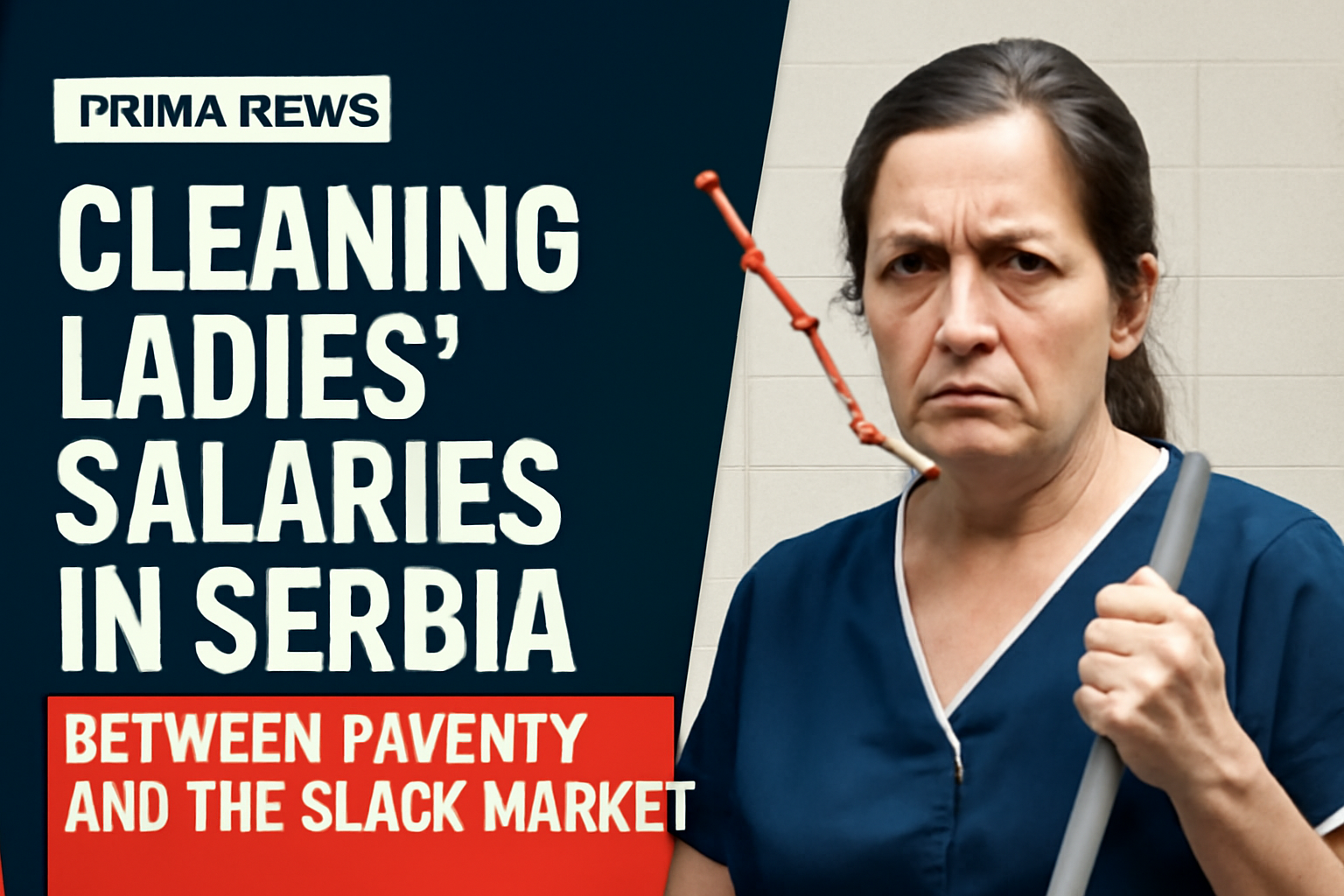Cleaning Ladies in Serbia: Invisible Heroes or Victims of the System?
While Serbia is busy discussing the IT sector and the brain drain of young professionals, one group of women remains in the shadows – cleaning ladies. Their salaries reveal a harsh reality: two Serbias. One is the public sector, where wages barely cover living costs, and the other is the private sector, where you can earn more but without any rights or security.
Public Sector: A Salary That Drives You to Despair
In schools, health centers, and municipal institutions, cleaning ladies are officially employed, but their net salary of about 33,000 dinars (around 280 euros) per month is far from decent. Seniority bonuses are symbolic – just 1 dinar per month! The job is tough, requiring physical effort and exposure to chemicals, yet the pay is so low many women barely make ends meet.
Private Sector: More Money, But No Rights
On the other hand, private cleaning ladies, either hired directly or through agencies, can earn up to 60,000 dinars per month (about 510 euros), with hourly rates in Belgrade and Novi Sad reaching 400 dinars (3.4 euros). A four-hour apartment cleaning can bring in up to 2,600 dinars, and two such jobs a day mean up to 5,200 dinars daily, which can exceed 2,000 euros monthly if working every day. But there’s no official registration, no health or pension insurance, no sick leave or maternity benefits.
The Dilemma: Security or Money?
Women face a tough choice: stay in the public sector with a secure but miserable salary or work off the books and earn significantly more but without any rights. In a country where every dinar counts, many choose the latter, leading to a silent “broom drain” – a phenomenon as serious as the brain drain but largely unnoticed.
Cleaning Ladies Fleeing Abroad
Classified ads are full of offers for cleaners in Slovenia, Germany, Switzerland, Norway, especially during summer months in tourist spots in Croatia and Bosnia and Herzegovina. Cleaning ladies know their job and have regular clients but are often victims of agencies that pay them minimal wages while the agency owners take the lion’s share.
Conclusion: A System That Ignores Everyday Heroes
While Serbia focuses on IT professionals and economic reforms, it forgets those who clean its schools, hospitals, and streets. Cleaning ladies are the backbone of society, and their wages and working conditions are a national disgrace. Maybe it’s time to ask ourselves – how much are we worth if we don’t respect those who keep us clean every day?
So, what about you? Would you rather work for a pitiful salary with rights or more money without any? Drop a comment, maybe we’ll find an answer or at least a good joke about the “broom drain”!









